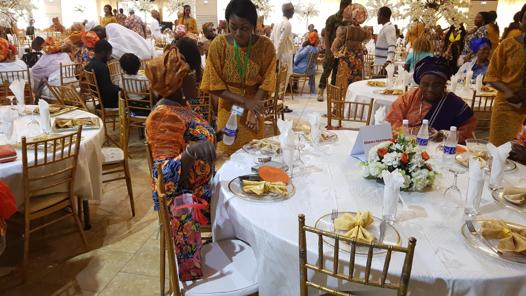
29 May When will Events Industry Recover from Coronavirus?
When is it safe to schedule your event? Here is a forecast of when things will go back to normal.
2020 has quickly gone from a promising year for the events industry especially those in hospitality, the year can so far be classified as one of the most damaging, and the estimated recovery period has already shifted back several times.
Event professionals, along with the rest of the world, are trying to make the best of widespread lockdowns while eagerly anticipating the resumption of normal activities.
The most challenging aspect is that nobody really knows.
There is a different account every day of what the future looks like. One day a vaccine will be available in September or already available like the case of Magadascar, then the next day, in 18 months.
In this terribly confusing scenario, we try to shed some light on when we can expect to come back to normal and when it will be safe to schedule events.
Assumptions
Immunity Tests Cannot Be Implemented at Events
Immunity testing seems to be one of the most viable options to go back to normal.
This week during a live interview on CNBC, German health minister Jens Spahn confirmed that, while we don’t currently have an antibody test good enough to determine whether people with immunity can return to work in critical infrastructure like hospitals, “in two, three, four weeks, we might have these tests… and as soon as we would have them, that is, of course, a real game changer.”
Even if such tests become available, we can foresee the application into controlled environments such as hospitals and factories.
App Tracing Is Irrelevant to Events
Many are also looking at technology tracing as a way to intervene early on cases of Covid-19. This approach proved successful in China and South Korea. Unfortunately, this maybe irrelevant for the industry.
This, in fact, is a preventive measure that could limit the spread of the virus but cannot be adopted to secure attendance at events.
The Possibility of Resurgence
Experts have warned that reducing containment measures too quickly could lead to another outbreak of the virus, which would likely mean intermittent social isolation measures being implemented whenever a resurgence occurs. We have yet to see the full effect of China opening back up, but the initial reaction of swarming tourist sites is not encouraging, and declaring success would be premature.
If we do end up facing ongoing lockdowns throughout the rest of the year, events will continue to be impacted. It may not be as simple as a country recovering within six months and never having to deal with the virus again.
It’s also worth noting that, even if most countries get this under control in the next few months, that won’t necessarily be the case everywhere. Many countries have yet to feel the full brunt of the coronavirus, and many of them are places with less capable medical infrastructure.
Cycles of Postponement
It is fair to anticipate that we are just ending the first phase of the postponement cycle. Most of the forecasts of the past month looked at postponements happening between March and June. We are now entering the second phase with most events being postponed.
This is the case with Burning Man, the latest victim of the cancellation wave. As uncertainty about travel restrictions and lockdowns persist, event planners can only look at the fourth quarter as a safe bet. Whatever was moved to late fall will in fact be impacted unless we don’t experience some breakthrough announcement (vaccine, herd immunity or cure) in the next two or three weeks.
How can you plan an event of thousands of attendees a couple of months in advance?
There Are No Events as Long as There Is Uncertainty
Events industry were one of the foremost industry to be shut-down by the covid-19 lockdown. When most technocrats comment about the economic comeback, they are referring to manufacturing and essential services being impacted by the crisis.
While we can dispute for months on the value meetings and events bring to businesses and individuals, events were the first to get axed when the virus started to break. Events are a major vehicle for transmission of the virus.
Size and travel will be the two major risk factors both countries and attendees look at when evaluating the risk of attendance.
Large events (at the time of writing) are associated with more risk of contracting the virus. Long-distance and international travel will be perceived as major risk factors as we have no (perceived) control over what another state or country is doing to prevent the spread of the virus. This leaves us with the possibility of organizing a smaller events in the meantime.
CONCLUSION
Many elements play a part in forecasting when the meeting industry will come back to normal.
Time will tell whether various containment measures were successful in slowing the spread of the virus and whether events will indeed pick up again in a few months’ time. Until then, we can only continue to watch how trends develop around the world and focus on maintaining business cash flow in the meantime.
We will keep updating this post to give you an indication of when things will start to look like normal.
Keep checking back for hopefully some good news.

No Comments